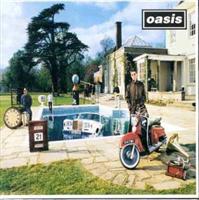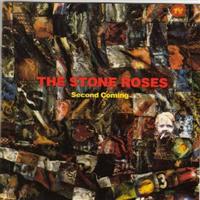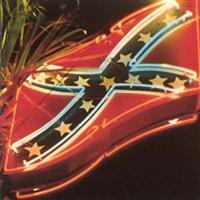« Features
The Career Killer?
Added on 29th August 2004
Feature courtesy of 'The Rope Technique', Written by Graeme
It's an oft repeated warning, but it's nevertheless true that the music industry is a fickle business. Heroes can become zeroes, and today's superstars can become tomorrow's nobodies. There can be many reasons for an artist or group to take such a fall, be it bad publicity (Michael Jackson), record company wranglings (The Black Rebel Motorcycle Club) or even mental illness (Arthur Lee of Love). But the vast majority of the time the cause is a bad album. One bad album is all it takes to turn off a fanbase, turn a favourable media sour, and make record companies tear up your contract.
But what actually constitutes a "bad" album? An album can receive great critical acclaim, but sell poorly. Conversely, an album can be terrible but sell well (Jet, I'm looking in your direction). And, at the end of the day, if it's the record the band truly wanted to make - isn't that what counts?
With this in mind let's take a look at four albums which, either at the time of release or at a later point, were seen as "career killers" for the bands in question - and look if they actually WERE responsible for the downturn that followed in each case. In no particular order, lets start with:
Oasis - Be Here Now (1997)

Oasis - Be Here Now
The Story: One of the most famous career killer album stories of all time, the story goes back to early 1996. Oasis were truly the biggest band in Britain and the pressure was huge to follow up What's The Story (Morning Glory) with an album to propel them to an even bigger level. Following the success of Knebworth, they got down to the recording of the new album. The initial signs were perplexing, Creation Records initiated a never before (or since) seen media campaign of blanket silence. Media outlets were threatened with legal action should they speculate about the album in a negative manner, radio stations were given specific instructions on when and how they could play the lead single D'you Know What I Mean, review copies were issued to no-one. It soon became apparent why - the album landed on August 1997, and was savagely panned for being a self indulgent, cocaine addled mess. Nearly every track was weighed down by a mountain of overdubs and endless guitar solos, and the whole thing was just a big, flabby mess. This was the beginning of the end for Britpop.
What Happened Next?: Despite a strong start (the album became the fastest selling album ever, and also charted well in the USA), the album quickly fell off the radar. Urban legend has it that Be Here Now is the album most traded in to second hand record shops of all time. Despite being in a perilous position at home, Oasis then soldiered on to America for another attempt to crack the US market. After failing miserably, the band all but disappeared for several years, attempting to undo the damage the album had done to both their fanbase and their media standing. They returned in 2000 with a new album, but it sold poorly and the numbers have continued to drop ever since.
Career Killer?: Undoubtedly. With the success they had, all Oasis needed to do was make another What's The Story, and the public would have lapped it up. A combination of a desire to crack America and rampant cocaine consumption instead led to the disaster that was Be Here Now. Indeed, looking back now it's hard to believe Creation even let the band release it, such was state it was in. No matter what they do in the future, Be Here Now will always be lurking in the shadows.
Pulp - This Is Hardcore (1998)

Pulp - This Is Hardcore
The Story: Having toiled in obscurity for over ten years, Pulp finally hit it huge in the Britpop era. 1995 album Different Class was the right album at the right time, and propelled them to true superstar status. Surely, after all they had been through to get to this stage, they weren't going to throw it all away. This Is Hardcore arrived in 1998, by which point Britpop was already on life support, to a largely muted response. Far from the all welcoming generation anthems of Different Class, This Is Hardcore was a downbeat, claustrophobic offering that was about as welcoming as a roaming band of Hutu rebels. The future suddenly wasn't looking quite as bright.
What Happened Next?: The singles stiffed, the venues got smaller and the column inches all but disappeared. Pulp were all but forgotten until they coaxed Scott Walker out of retirement to produce comeback album We Love Life in 2001. It was a fine album, but the damage was already done - the album sold poorly and the general public viewed them as damaged goods. Pulp split soon afterwards.
Career Killer?: On the surface yes, but lets look at some other evidence. Firstly, Britpop was long gone by the time it came out and Pulp had been very much a band of it's time. The post Britpop era was a harsh climate for the traditional British guitar band, with the likes of Radiohead and Spiritualized were now very much the order of the day. Had This Is Hardcore had been a classic, it would still have struggled. Secondly, the support from Island Records was poor. Was Help The Aged really the best choice for lead single? Lastly, Pulp (and Jarvis Cocker in particular) had always been the proverbial square peg in the round hole. It's not ridiculous to suggest that the success of Different Class scared them off of fame and This Is Hardcore was a deliberate attempt to actively escape the limelight. Did it kill Pulp, then? No, it was Britpop that made Pulp, and it was Britpop that ultimately killed them. This Is Hardcore just accelerated the process...
The Stone Roses - The Second Coming (1994)

The Stone Roses - The Second Coming
The Story: Upon releasing their debut album in 1989, the Stone Roses truly were the biggest band in Britain. The centrepiece of both the "baggy" and "Madchester" scenes, and with an all time classic debut album under their belt, they could do no wrong. Later that year they released the seminal Fools Gold, and followed that up in 1990 by playing to 28'000 at a one-off gig at Spike Island. Unfortunately, it was all downhill from there. The band would spend much of the next 3 years not making music, but instead fighting a long and protracted court battle with Silvertone Records. The band eventually signed to Geffen (for a reported £4 million) and got down to finally making a new album, but things weren't well within the Roses camp. A combination of ego wars and drug problems caused all sorts of problems, and the band (who had not been in the public eye since 1990) would take until December 1994 to release The Second Coming. Upon hearing it, the majority of their fanbase were stunned - gone were the jangly anthems of old, replaced by Zeppelin style guitar heavy workouts. Would this brave new direction propel them to greater heights, or bury them?
What Happened Next?: The singles charted well, and things were looking up with a headline slot at Glastonbury '95 approaching. In April however, drummer Reni quit suddenly, and the band had to cancel Glastonbury at the 11th hour when John Squire broke his collarbone (ironically enough, Pulp stepped in to replace them). Things didn't improve when Squire decided to quit in early 96 (guitarist Izaz Ibrahim stepped in to replace him). And then, of course, were the events of Reading 1996. The band split days later.
Career Killer?: Probably. While the amount of time they spent away from the limelight certainly didn't help, the musical direction the album took was the main turn off for all concerned. Was it a conscious attempt to break into the American market? Maybe, but it stood no chance in the UK in 1995 with the likes of Oasis, Blur and Suede being the in thing. The seeds of the split between Squire and Ian Brown were sown here, and it's hard to see where they could have possibly gone next.
Primal Scream - Give Out But Don't Give Up (1994)

Primal Scream - Give Out But Don't Give Up
The Story: For one brief moment in 1991, Primal Scream were seen as the future of British music. On the back of revolutionary Screamadelica (which won the first ever Mercury Music prize in 1992), all eyes were on them to shape the sound of the nineties. The media was awash with speculation as to what they would do to top the transcendal sound they had pioneered on that classic album. So what did they do? They became heroin addicts, moved to Memphis and recorded a blues rock album that, at times, sounded like a particularly bad Rolling Stones tribute album. Their fans were not amused.
What Happened Next?: With the exception of Rocks (which actually became their biggest ever hit), the album was largely derided from all corners. After the revolution of Screamadelica, no-one was wanting to hear these horrible blues retreads. The US tour that followed, stories of which are near legend (such as the time guitarist Andrew "Throb" Young took a limo into a ghetto to score some drugs, and ended up being chased out by a machine-gun toting gang), nearly ended the band, and it took them years to recover - on all levels. It took guitarist Andrew Innes to finally take control and steer the band into new territory. They emerged in 1997 with Vanishing Point, a staggering fusion of dub, rock and jazz which was years ahead of its time. The damage had been done, however, and the band would never again reach the dizzy heights from before Give Out...
Career Killer?: Not at all. While the band's commercial clout has never fully recovered, they have musically gone from strength to strength. Vanishing Point set them on to the right track, and in January 2000 they came full circle and delivered XTRMNTR - which once again briefly saw them heralded as one of the most important bands in the country. Following the collapse of Creation in late 2000, the band were picked up by Sony, where they remain to this day. Don't be surprised if they pull it off again...
Written by: Graeme
Comments
No comments have been added yet...
Add a comment
Comments are currently disabled on the site
Share
-
Search